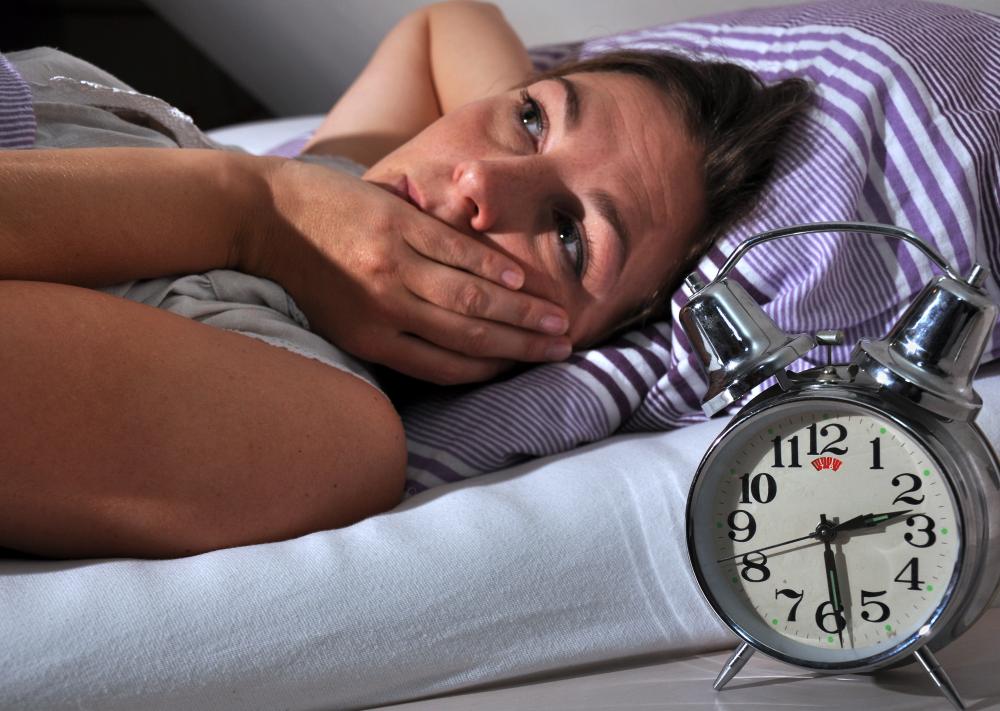At WiseGEEK, we're committed to delivering accurate, trustworthy information. Our expert-authored content is rigorously fact-checked and sourced from credible authorities. Discover how we uphold the highest standards in providing you with reliable knowledge.
Is Caffeine Addiction Dangerous?
There are times when old wives' tales or urban legends are based in reality. This is probably never more true than in the case of a potential caffeine addiction. It seems to be a fact that millions of people around the world do not function well at all without their morning cup of caffeine-laden tea or coffee.
However is such a need truly a caffeine addiction, or is it a psychological habit? In truth, the jury is still out on this question. Despite years of research involving thousands of hours and untold millions of dollars, the positives and negatives of caffeine continue to be open for debate.

One thing that can be stated with certainty is that any addiction, to any substance or activity, is potentially dangerous. Plain and simple, caffeine is a drug. Even though both the United States Food and Drug Administration and the American Medical Association consider it a “safe drug,” there can undoubtedly be problems related to overindulgence. Too much of even a good thing is simply too much.

If a person feels they suffer from a caffeine addiction, he is probably correct. If one experiences severe withdrawal symptoms when they miss their regular dose of caffeine, it is perhaps a sign of addiction. These symptoms, which can include shaking, nervousness, headaches, and irritability, are indicators of addiction. On the other hand, these same symptoms can occur if one consumes too much caffeine.

Is a caffeine addiction dangerous? In a sense, if an individual feels they cannot function well without ingesting a given substance, the answer would be yes. Is a caffeine addiction dangerous in the sense of it being life threatening? In that case, the answer would virtually always be no.
Different people have different tolerances. The amount of caffeine that might prove addictive to one person might have little or no affect on another. While a caffeine addiction could not be considered deadly, it could easily be considered highly unpleasant.

If one is caffeine addicted, and attempts to kick the habit, he will likely experience headaches, insomnia, and irritability. He might be afflicted with dizziness, mild confusion, or stomach pain. There is also some evidence that there is a link between caffeine intake and erectile dysfunction. Again, however, these same symptoms can take place when one consumes too much caffeine.

If a person does believe she is addicted to caffeine, and believe it is causing her problems in life, the best course is to attempt a gradual reduction in usage. As is true with many of the substances we eat and drink, a good rule of thumb is “moderation in all things.” That might be something to consider over that next cup of coffee.
AS FEATURED ON:
AS FEATURED ON:
















Discussion Comments
@ Anon55434- The effects of caffeine addiction are definitely taxing on the body. Like you, I find it hard to quit drinking caffeine until I have at least a week off from work. The last time I quit was during the summer break (I am a teacher) and I did not drink coffee for at least six months. I had never felt better, but the hiatus did not last forever. Now I am trying to wean myself off caffeine slowly, hoping that i can quit drinking coffee for good now.
@ Anon55434- I would have to agree with you on the horrible migraines associated with caffeine addiction withdrawal. I am also a student, and I drink coffee by the bucket. It is always one of those things, where I wish I didn't drink so much coffee (although I love the taste), but I can't quit drinking it until the semester is over. When I stop drinking coffee, It takes about a week for the headaches to stop, and it takes about two weeks for my body to adjust to life without a jolt. It throws my whole schedule off if I stop drinking coffee while I have to juggle five or six classes and a job. If only there were a substitute that tasted as good, kept me awake, and didn't have the side effects of caffeine.
Funny story: I was put on some drug that doubled as an anti depressant for my migraines. Nobody could figure out what it was that was causing it, but while I was on the drug, I was put on a strict diet. Which rather baffles me, because you're inserting two variables into the equation. Maybe they just got a huge thrill off of writing a prescription.
At any rate, the migraines didn't go away, even after the drug. But I was also a heavy coffee drinker. It took me a while of experimenting to determine if coffee was the cause, and it sure was. I'd drink a pot a day for a long time, then stop cold turkey and get horrible migraines that wouldn't go away.
I repeated this (since I'm in college and I drink tons of coffee now) to receive the same effect. There's certainly a degree of physical dependency after a lot of caffeine intake -- but the only adverse side effect is an awful caffeine withdrawal migraine.
Post your comments